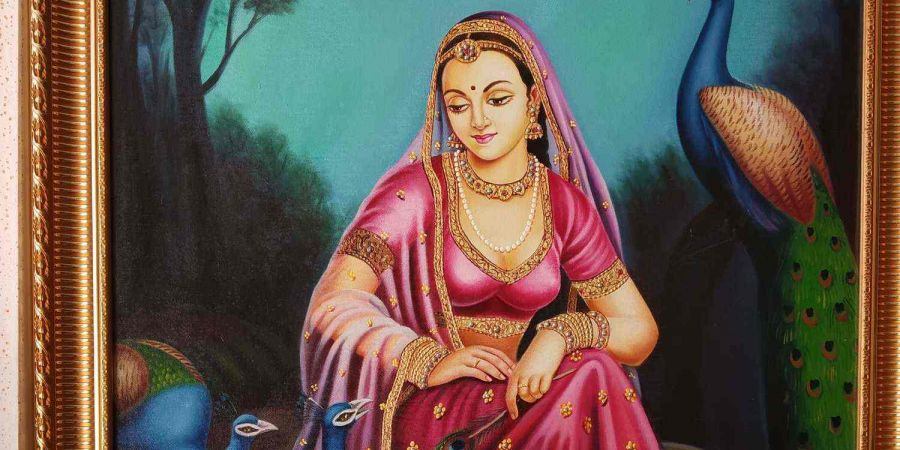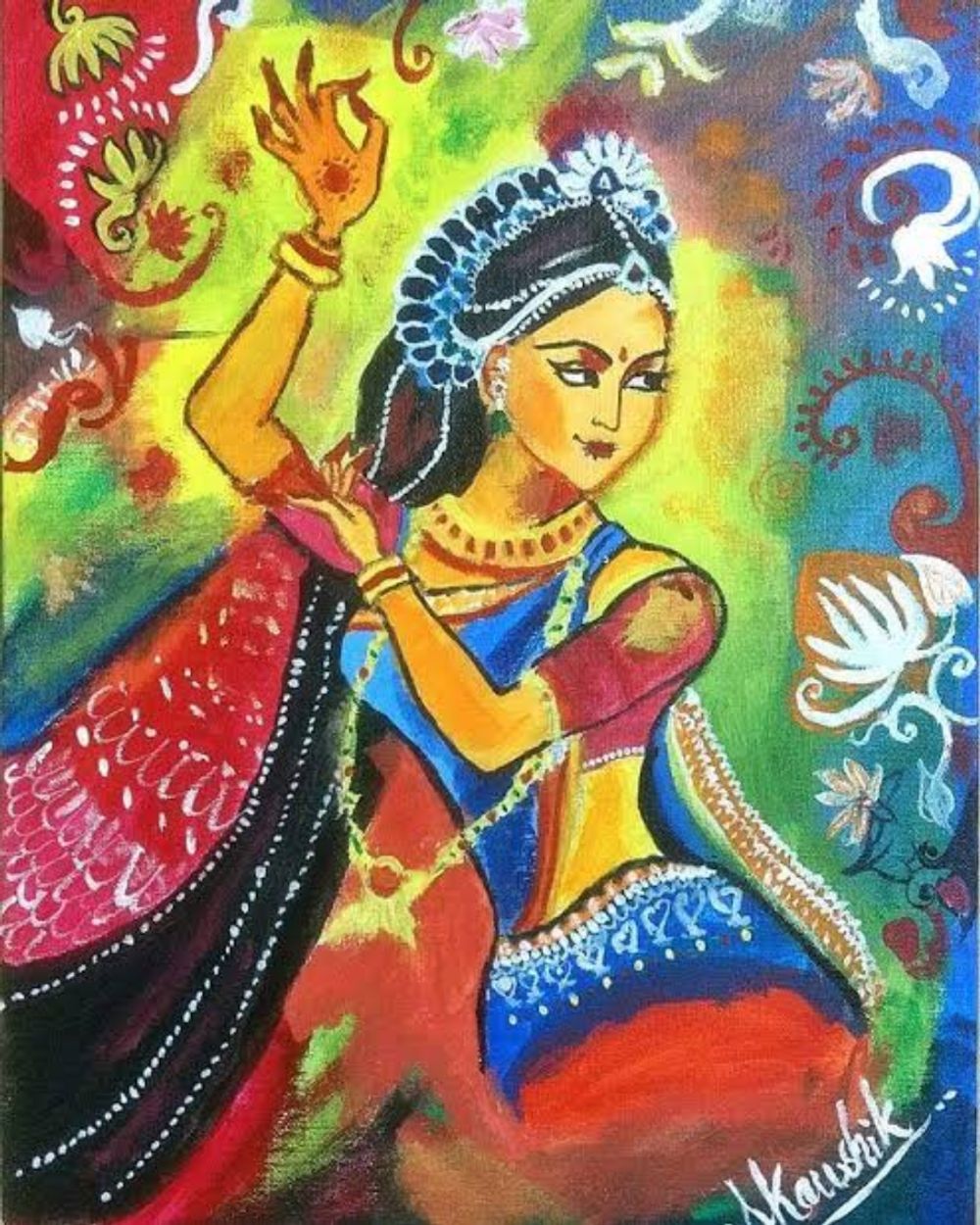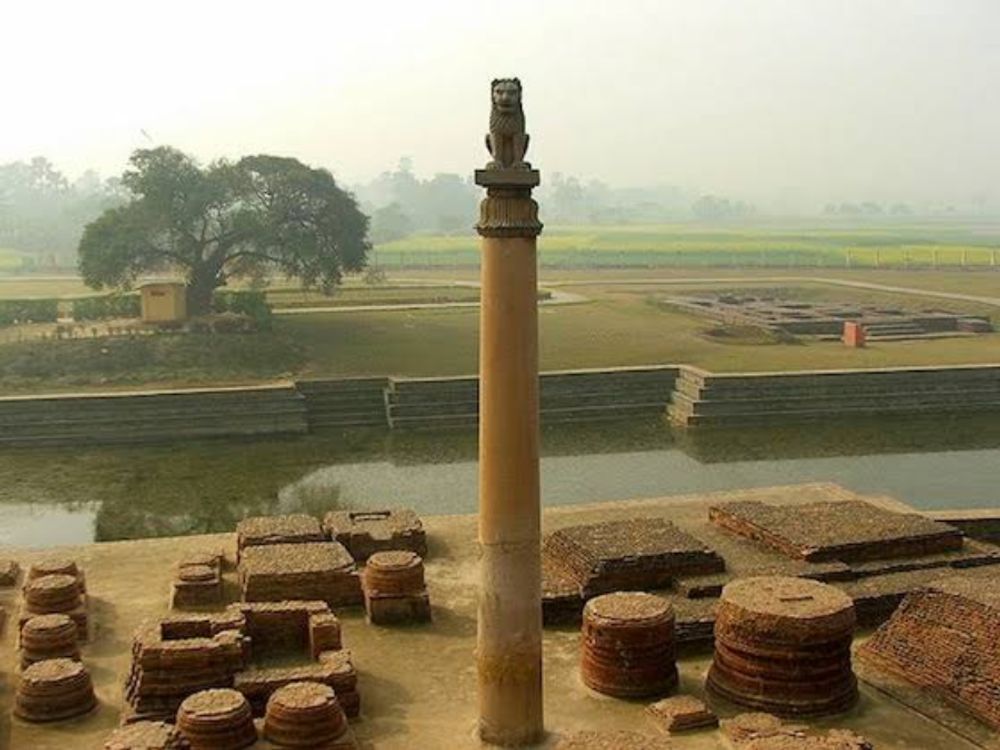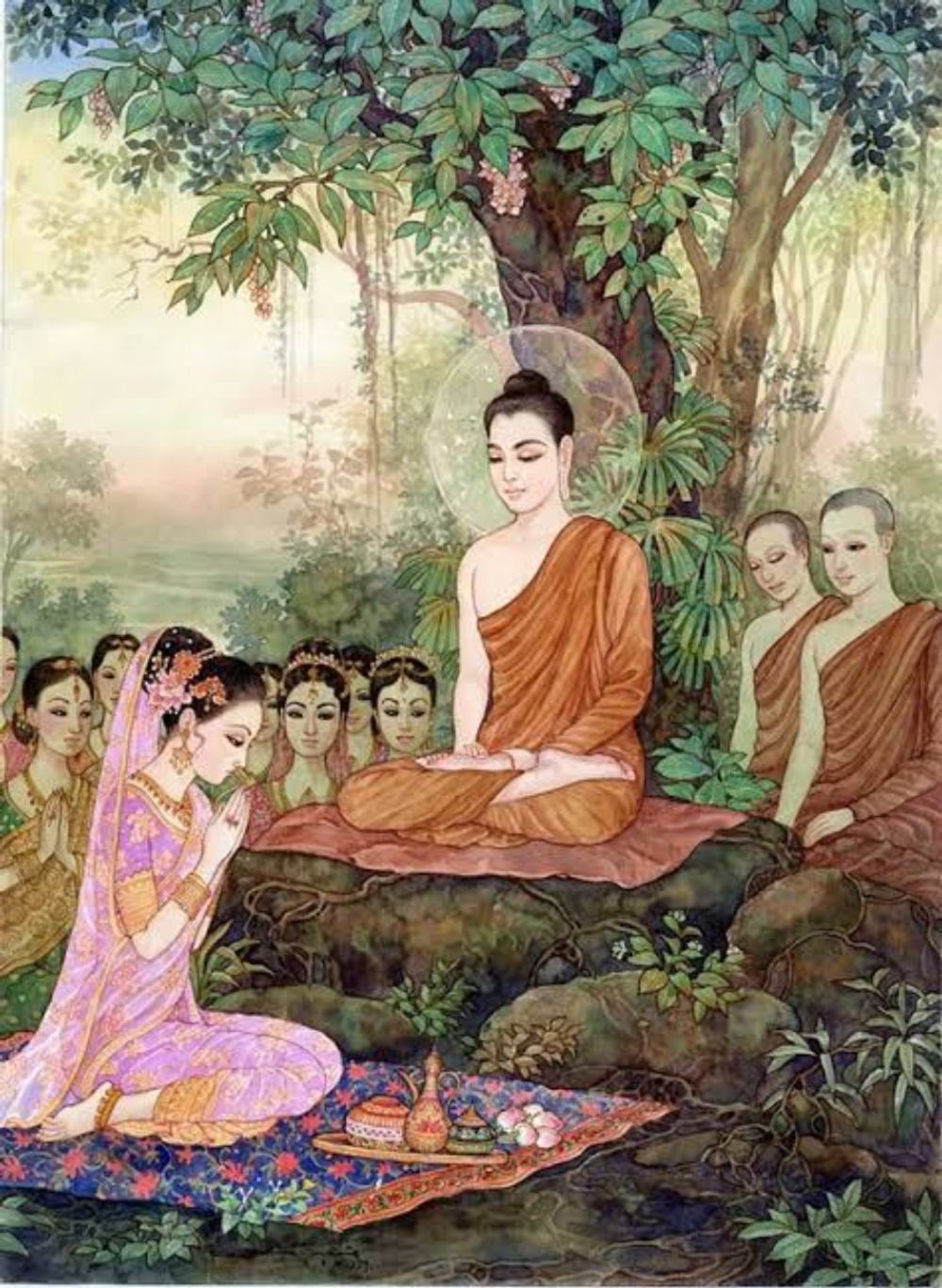

Born around 600-500 BCE, the variants of her name derive from a combination of two Sanskrit words; ‘amra’ meaning mango, and ‘pallawa’ meaning young leaves. It is said that she was found hanging on the branch of a mango tree in one of the royal gardens of Vaishali - hence her name.
Vaishali (Presently in the state of Bihar) was the capital city of the Lichchavi clan, one of the eight Khattiya clans that had united to form the Vajjian confederacy.
Amrapali was the most beautiful woman of her time. As she moved forward to her youth, people of the state became crazy for her. From King to traders, everybody in the state wanted to marry her. Her beauty drove the city mad.

Amrapali grew up to be a lady of extraordinary charm and grace, and was talented in many art forms. When Manudev, king of Vaishali, saw Amrapali perform a dance in the city, he plotted to “own” her. He murdered Amrapali's childhood love and would-be-groom, PushpKumar, on the day of their wedding and afterwards made an official announcement declaring Amrapali as the ‘bride’ of Vaishali - Nagarvadhu. Her beauty became her greatest enemy.

Stories of her beauty reached to the ears of Bimbisara, King of the hostile neighboring kingdom of Magadha. He attacked Vaishali, and took refuge in Amrapali's house. They both fell in love but as soon she learned his true identity, Amrapali asked Bimbisara to leave and cease his war. Bimbisara, blind with love, did as asked.
Ajatashatru, Bimbisara's son by Queen Kosala Devi, later invaded Vaishali due to a dispute . When he saw Amrapali, he was so moved by his beauty that when Amrapali was imprisoned, he burned the whole of Vaishali. Almost everyone died in the massacre, except his beloved. But when Amrapali saw the condition of her motherland, she renounced her love for him.

Amrapali finds repeated mention in the Jataka tales and the ancient scriptures of Brahminism, Buddhism and Jainism. According to Buddhist scripture, one day when Buddha visited Vaishali, Amrapali went to listen to him. She was so moved by his teachings that she invited Buddha for lunch at her palace. Buddha accepted her invitation. There she begged Buddha to change her life in the way to salvation. Due to her request, Buddha accepted her as his discipline. She devoted her life to the poor and needy














